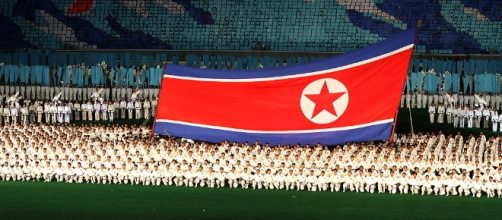A little over a week and a half ago, North Korea detonated a device it claimed to be the country's first hydrogen bomb. While there is no independent confirmation, the explosion was the largest in more than a decade.
This is the latest development in what has been an alarming acceleration of the country's weapons program that has seen numerous missile tests over the past few months. There is a large arsenal of conventional weapons at disposal of the North Korean military that could inflict significant damage and casualties on South Korea, as well.
In response, the UN unanimously passed a resolution putting stringent sanctions on North Korea.
The problem facing the United States is that none of the policy options available to deal with this crisis are ideal, or even that positive. All of them carry a potential drawback.
The major consideration for any action on the Korean peninsula is how China responds. The Chinese have become increasingly active in the far east over the last decade in an attempt to be the major power in the region. It is unlikely they will be willing to let the U.S. dictate a resolution that Beijing is not at least amicable to.
Options Available to the United States
The first option would be to wait and hope the sanctions have an effect.
History says this is unlikely. Kim Jong-un's regime has proved adept at being able to direct the limited resources they do have into continuing their weapons programs. It is the general population that has weathered the brunt of the trade limitations the international community has put on the country.
Up until this point, North Korea's only real ally has been the Chinese. The second option would be to try and use diplomatic pressure on the government in Beijing to have China try and bring Kim under control. This option is not likely to be popular in the State Department as it effectively says the U.S. is not able to deal with this on its own and needs help. Few actions would give the image of American decline on the world stage as much as this.
To have to pass it off to China only amplifies the bad taste it would leave.
Option three is to negotiate with North Korea. This approach was used in the past when Kim made some moves to get attention. If past experience is a guide, it may work in the short term, but the weapons program will be back up and running within a couple years again. There is also the problem of what the U.S. would be willing to deal or offer in return. A peace treaty seems out of the question, and even some sort of non-aggression pact is equally unlikely. Some sort of trade deal is more complicated. In the past, the U.S. would give North Korea some material or intellectual goods in return for the end of weapons development/testing.
With weapons development where it is, could you convince North Korea to disassemble what they already have?
The last option is the one that should get everyone worried - some type of military action. Whether it is full-scale war or not would be more a detail than central to the potential damage that could be done. Seoul, the South Korean capital, is only 12 miles from the border and is bound to take massive shelling from conventional forces. The civilian casualties would be enormous. There is also the potential for it to escalate and bring in other neighboring countries, like China, as happened in 1950.
What to do?
This is Donald Trump's first major foreign policy test and it is one of the most difficult any President has had in some time.
Doing nothing is not really an option and there is no good answer. It doesn't help that Trump, up till now, has not had any coherent foreign policy. The uncertainty that sends a message to the rest of the world that is not reassuring.
Regardless, of what the administration decides, the repercussions may be long lasting.


